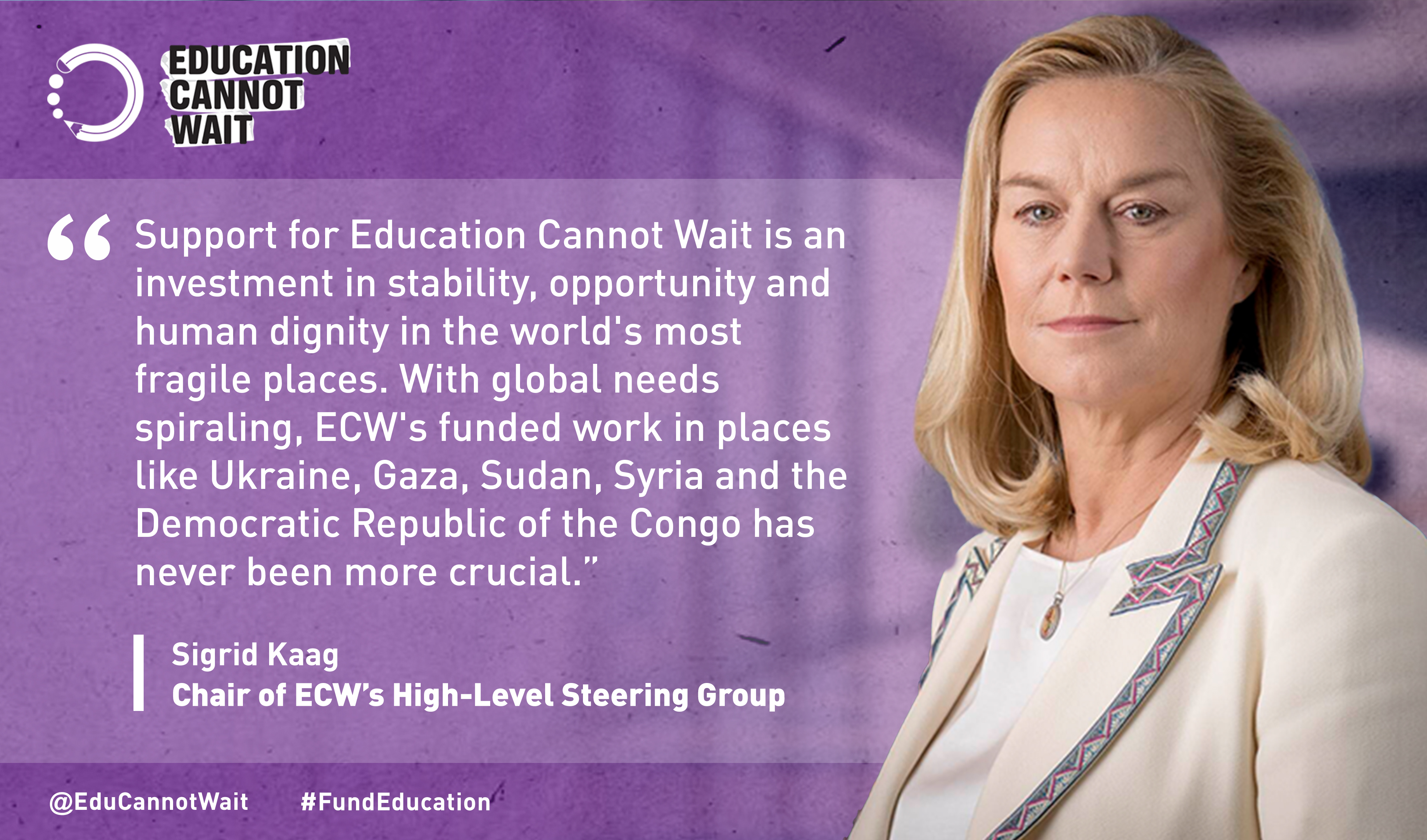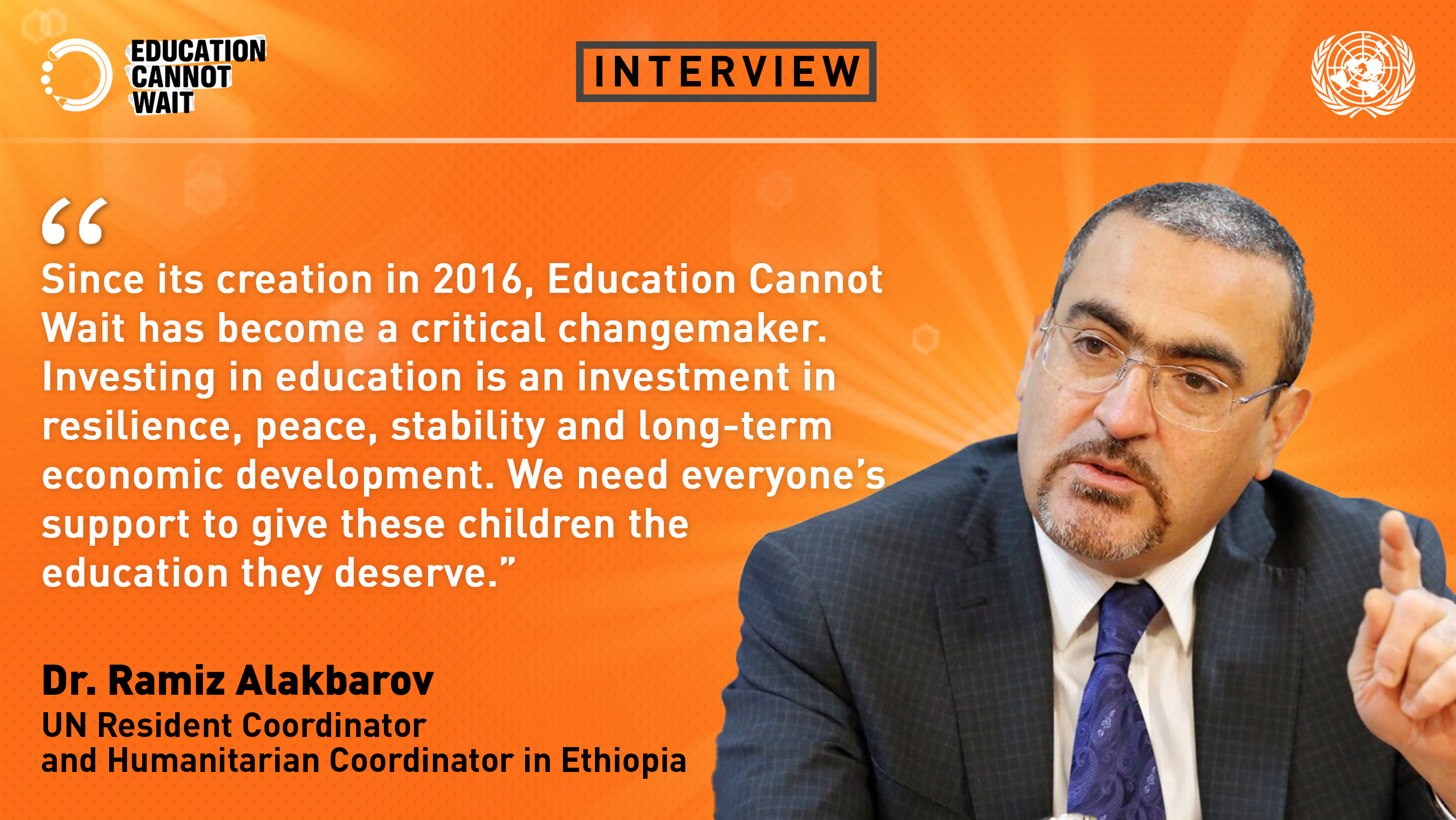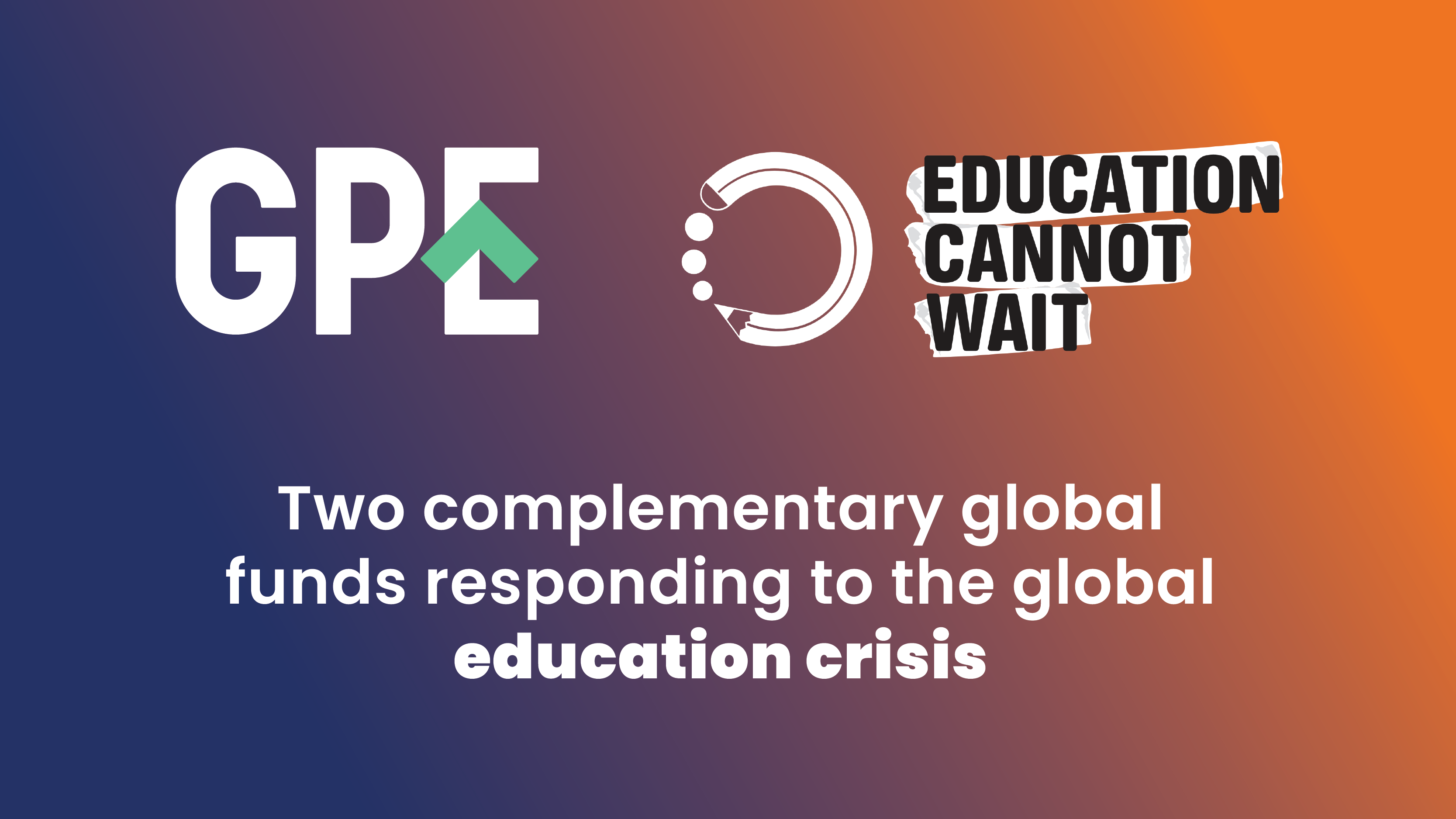Education Cannot Wait Interviews Theirworld President Justin W. van Fleet
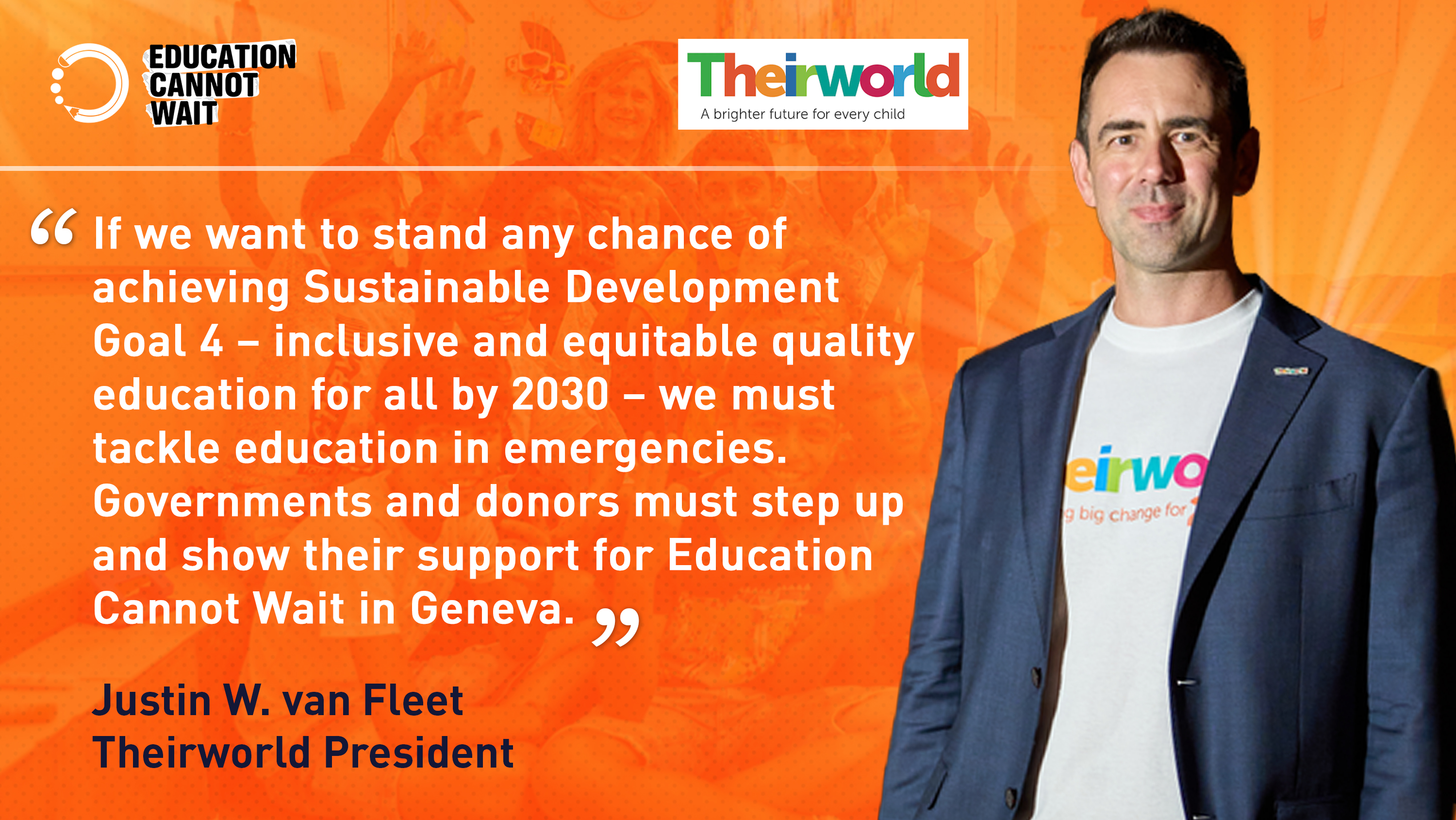
Justin van Fleet, Ph.D, is President of Theirworld and Executive Director of the Global Business Coalition for Education. Justin previously served as the Director of the International Commission on Financing Global Education Opportunity and Chief of Staff to the United Nations Special Envoy for Global Education and prior to that as a Fellow at the Brookings Institution’s Center for Universal Education.
ECW: Theirworld is a founding member of Education Cannot Wait. Why did you put so much effort into establishing the United Nations global fund for education in emergencies and protracted crises?
Justin van Fleet: At Theirworld we want to “unlock big change” for the world’s children. That means we are constantly looking for opportunities to bring people together through advocacy and campaigning to create a real difference.
When war in Syria forced millions to flee, we stepped in. We worked hard to bring together partners to campaign for better education for refugees, and helped to develop a blueprint for double-shift schools in Lebanon, which has helped hundreds of thousands of children to learn and thrive.
But we realized that education was often an afterthought in emergencies, compared to the urgency given to providing services like food, water and shelter. There was no coordinated global response to mobilize education resources in emergency situations. We decided it was time to create a dedicated global fund to address this issue systemically.
We set to work, mobilizing a coalition of youth campaigners, education experts, and more than 60 leading NGOs. At the World Humanitarian Summit in May 2016 – the first of its kind – we helped deliver the Safe Schools petition. With more than 250,000 signatures, that petition led directly to the creation of Education Cannot Wait.
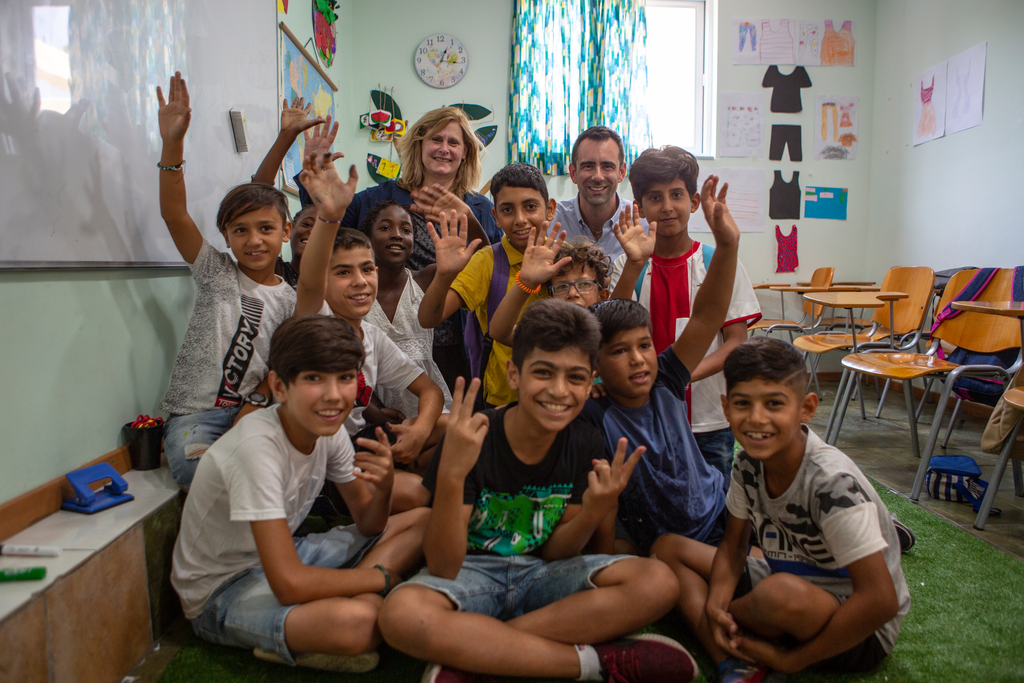
ECW: ECW and our strategic partners have reached 7 million children and adolescents in the world’s toughest contexts with the safety, hope and opportunity of education. ECW has a proven model to take it to scale together with multiple partners, including Theirworld. Where do you see the greatest needs?
Justin van Fleet: Protecting early childhood education (ECE) in emergencies is absolutely critical. Quality ECE aids the healing process for children who have been through trauma or displacement; supports their cognitive, emotional and physical development; and sets the foundation for a successful future.
We know from extensive research that the first five years of a child’s life are among the most important in terms of healthy development. A child’s brain goes through 90% of its development in these years, yet as a global community we dedicate just 1.2% of education aid in these years.
That fact should shock us all, and it’s why we are launching a major campaign next year, calling on world leaders to invest what’s needed into ECE. This is a major priority for us, and we’re looking forward to working with other organisations on behalf of the world’s under-5s.
ECW: Today, there are 222 million crisis-impacted children and adolescents who urgently need education support. Why should donors, governments, the private sector and high-net-worth individuals step up to fund ECW’s Strategic Plan at ECW’s High-Level Financing Conference next February in Geneva to realize #222MillionDreams✨📚?
Justin van Fleet: So many crises affect the world today, and they are only increasing in number. Conflict, natural disasters and other emergencies all force people to flee their homes, further fueling the education crisis. If we want to stand any chance of achieving Sustainable Development Goal 4 – inclusive and equitable quality education for all by 2030 – we must tackle education in emergencies. Governments and donors must step up and show their support for Education Cannot Wait in Geneva.
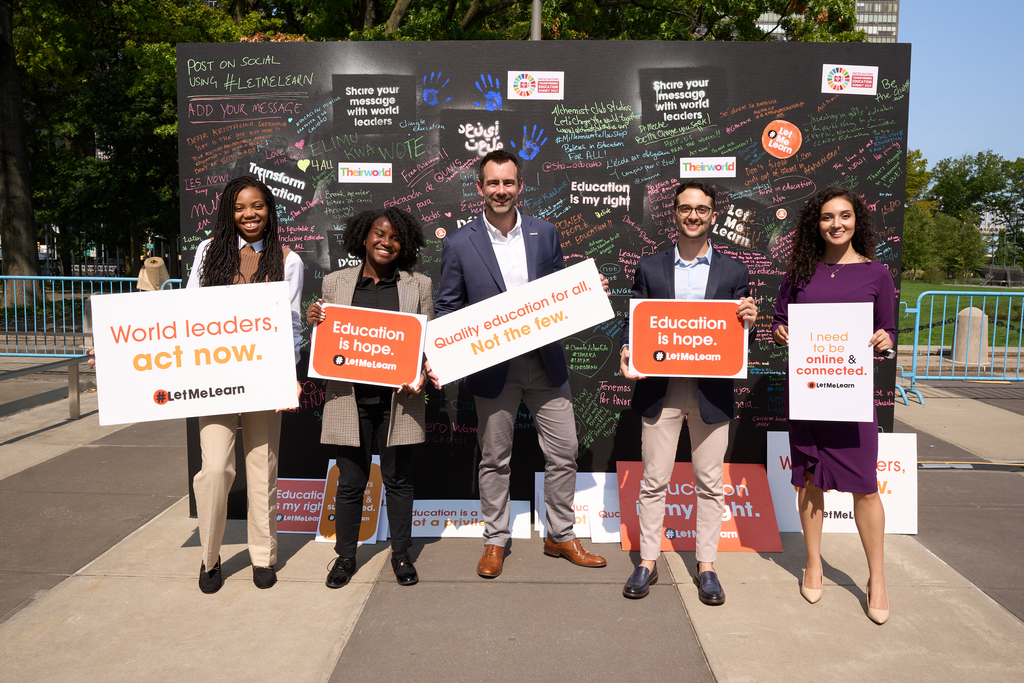
ECW: At the UN Secretary-General’s Transforming Education Summit Theirworld mobilized inspiring global youth ambassadors through the #LetMeLearn Campaign. How can we take the lessons learned from the TES and the campaign to activate a global movement to leave no child behind?
Justin van Fleet: Today’s young people are truly a force to be reckoned with. At Theirworld we run the Global Youth Ambassador programme, a network of young activists from across the globe working together to end the global education crisis.
In recent years we have expanded the programme, and now have 2,000 young people enrolled in this year’s cohort from 120 countries. Many of them have grown up facing adversity and know from personal experience what a positive force education can be.
These young people drove our #LetMeLearn campaign. They posted passionate videos on social media calling on world leaders to listen and act on their demands for quality education. It was thanks to their determination and support that the campaign grew into a global movement. Campaigning is the best way for young people to make a difference on the education crisis, so if anyone reading is interested in joining the programme, they can find out more here.
ECW: With the Nationale Postcode Loterij, Theirworld supported ECW investments in response to the influx of refugees and asylum seekers from places like Afghanistan and Syria to the Greek Islands. Why is investing in education in crisis-impacted countries across the world important for the people of Europe?
Justin van Fleet: Investing in education is vital if we want to live in a safer, healthier and wealthier world. We know that quality education aids economic growth, reduces a family’s exposure to poverty and decreases the risk of conflict. Wherever refugees suffer from disrupted education, it is vital that we make sure they have access to the same education as other children so they can make an even greater contribution to their host country and, hopefully, return to help rebuild their home country.
But we also need to support children when they arrive at our shores from countries like Syria, Afghanistan and, more recently, Ukraine. In 2020, Theirworld developed a blueprint to get every child refugee in Greece back into school. That blueprint was adopted last year by the Greek government and UNICEF, who committed to providing a route for 26,000 school-age refugee children into formal education over three years. By providing hope and opportunity for young people, regardless of where they have come from, they will be better prepared to create a better future for their family and community.
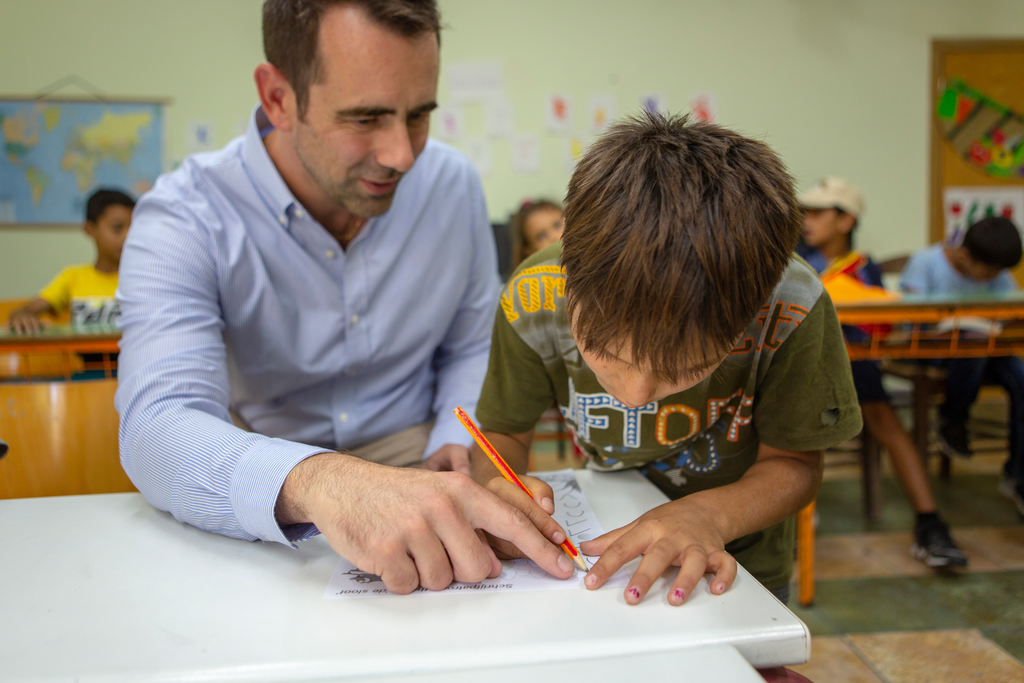
ECW: You are also Executive Director of the Global Business Coalition for Education. How can we inspire more private sector companies to follow the example of The LEGO Foundation, Postcode Lottery, Verizon, Porticus and HP to fund ECW? Why is investing in education for crisis-impacted children a sound investment for businesses and the economy worldwide?
Justin van Fleet: Businesses recognize that investing in education is important not just as a fundamental human right, but also a smart investment. It fuels the next generation of talent, innovation and economic growth.
Supporting causes like education also helps engage employees around a company’s broader purpose. Employees increasingly feel that when their purpose is aligned with their employer’s, the benefits expand to include stronger employee engagement, heightened loyalty and a greater willingness to recommend the company to others.
A great example of a company using its core business to support education in emergencies is in response to the conflict in Ukraine. We have been working closely with HP and Microsoft to implement a $30 million partnership to deliver laptops and learning devices to displaced children and teachers in Ukraine and the surrounding countries, so they can connect to education. Together we are helping to keep learning alive for children whose lives have been turned upside down.
ECW: You were a fellow at the Brookings Institution’s Center for Universal Education and reading is a key part of every child’s education. What are the 2-3 books that have most influenced you personally and professionally and why would you recommend them to others?
Justin van Fleet: Safi Bahcall’s book Loonshots is a timely reminder that throughout history, great things have been achieved that at times seemed impossible, and that there are a variety of different people who make up the teams which nurture ‘crazy’ ideas and transform society.
I also recently read Caste by Isabel Wilkerson and found it to be a very poignant reminder of how systems of granting or withholding privileges, resources and kindness can be so easily created and legally reinforced, with profound impacts for generations. It’s not enough to simply recognize their existence, but important to take purposeful and deliberate action to dismantle them.
Lastly, Janesville by Amy Goldstein explores middle America and reminds me very much of my hometown in rural Appalachia. It covers the great recession around 2008 and shows how waves of fortune and misfortune affect people in rich and poor countries alike. The book demonstrates how people are often thrust into situations of poverty due to circumstances beyond their control, as the result of economics, business decisions and politics. As such, it is a useful reminder of the importance of humility.

